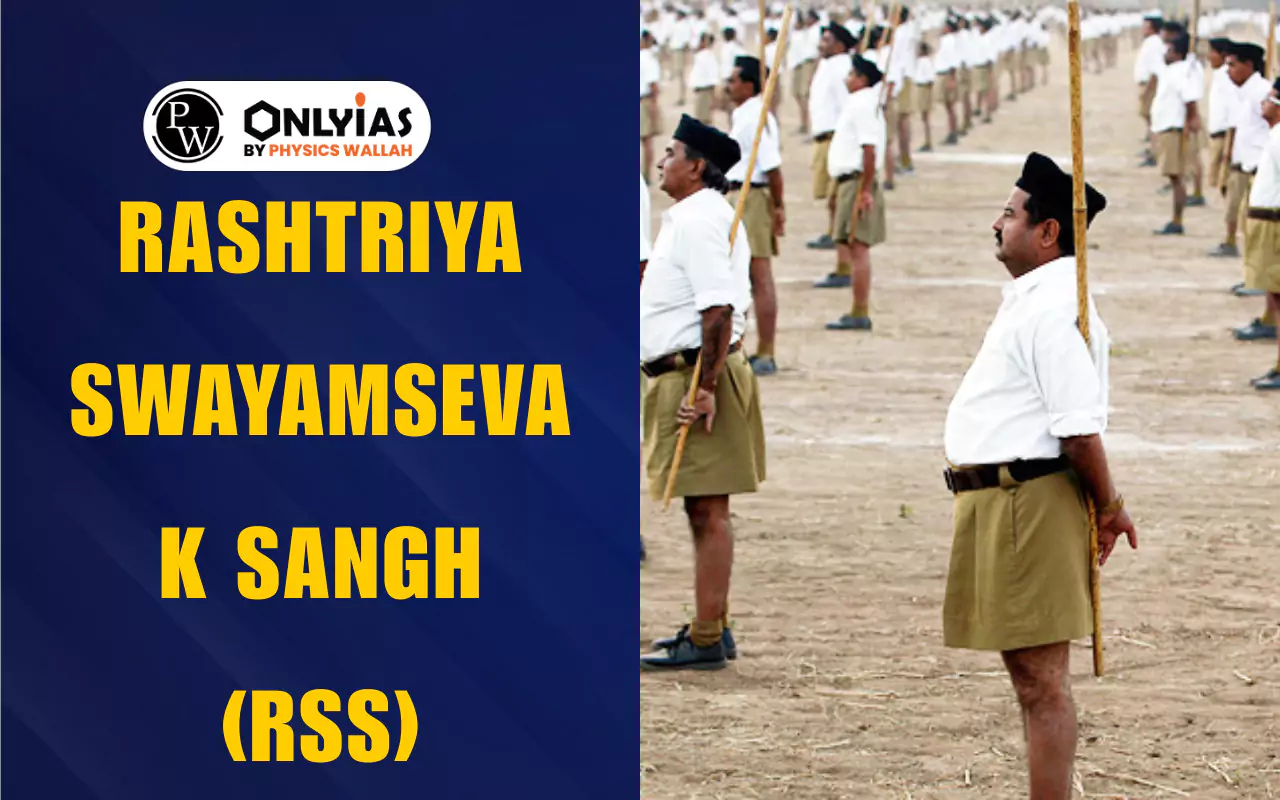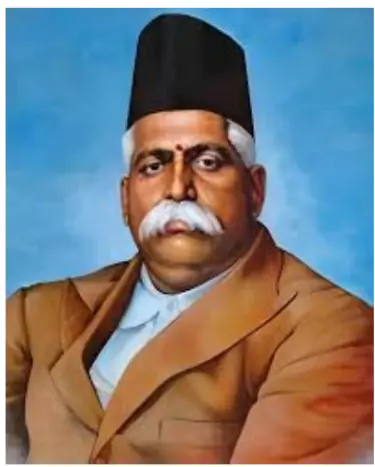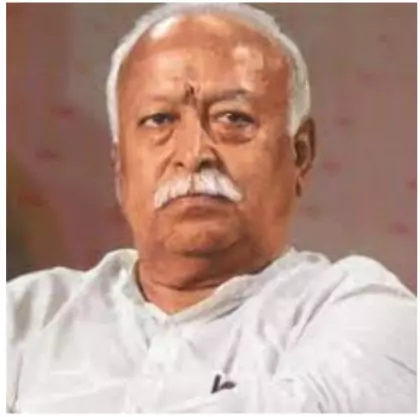Rashtriya Swayamsevak Sangh (RSS), founded in 1925 by K.B. Hedgewar in Nagpur, marks its centenary in 2025. Known for discipline, unity, and service through shakhas, it continues nation-building under Dattatreya Hosabale. PM Modi released a ₹100 coin and stamp to honor its 100-year journey and societal contributions.

Rashtriya Swayamsevak Sangh (RSS) has completed 100 years of working in India. Over this time, RSS has become an organization that helps people, organizes communities, and spreads awareness about Indian culture in society. RSS has taught many important values, motivated volunteers to work, and helped people to live with discipline and unity.
This 100-year milestone is not just about its age, but it is also about the positive impact it has had, its main ideas, and how it has grown all over India. The story of RSS is about dedication, teamwork, and thousands of members who are working together over many generations.
In 2025, RSS has mark 100 years. Rashtriya Swayamsevak Sangh was started in Nagpur. RSS has grown to become an organization that is active all over India. RSS was created to help people become disciplined, responsible, and aware of Indian culture.
Over the years, RSS has set up shakhas (branches) where members, called swayamsevaks, they are trained in fitness, leadership, and social responsibility. They take part in community work, education programs, disaster relief, and health activities.
Dattatreya Hosabale, who is the current leader of RSS, says, “The strength of RSS comes from members who work selflessly to help society and follow cultural values.” Thanks to this dedication, RSS has stayed important and grown stronger over the years.
To celebrate 100 years, RSS has held seminars, community programs, and public events to show its contributions to society. These celebrations also highlight how RSS encourages responsibility and unity in society.
On October 1, 2025, Prime Minister Narendra Modi released a special ₹100 coin and a postage stamp to celebrate 100 years of the Rashtriya Swayamsevak Sangh (RSS) at the Ambedkar International Centre in New Delhi. He called RSS the symbol of “timeless national awareness” and said it plays an important role in helping India grow into a developed country by 2047. Below, we’ve mentioned the important details of these historic events:
| ₹100 Coin and Stamp for RSS Centenary | |
| Topic | Details |
| Event | PM Modi released a special ₹100 coin and postage stamp to mark 100 years of RSS on October 1, 2025, at Ambedkar International Centre, New Delhi. |
| Significance | RSS is called the “embodiment of timeless national consciousness” and highlighted for its role in building a developed India by 2047. |
| ₹100 Coin |
|
| Commemorative Stamp | Honors RSS volunteers, including their march in the 1963 Republic Day parade, symbolizing dedication to nation-building. |
| RSS Shakhas | Shakhas are spaces where individuals grow from “Me to We,” focusing on character-building, discipline, and social service. |
| Affiliated Organizations | Vanvasi Kalyan Ashram, Sewa Bharati, Vidya Bharati, Ekal Vidyalayas – working in education, tribal welfare, women empowerment, and social justice, even in remote areas. |
| Comparison | RSS is compared to a river, nourishing diverse regions and communities across India. |
| Panch Parivartan Framework | Five guiding principles: self-awareness, social harmony, family enlightenment, civic discipline, and environmental consciousness. |
| Overall Message | The coin and stamp celebrate 100 years of RSS service, patriotism, and nation-building, inspiring present and future generations of swayamsevaks. |
Rashtriya Swayamsevak Sangh (RSS) is a group in India that works to teach people discipline, cultural values, and the importance of helping others. It has many local branches called shakhas, where members, called swayamsevaks, meet regularly for exercises, learning, and community service.
RSS teaches values like self-discipline, responsibility, and national unity. Members take part in volunteer work, help during disasters, and support education programs. Over time, RSS has also created many groups were their focus is on education, healthcare, and helping villages.
RSS is not a political party. It is run by volunteers who want to make society more strong and better by giving them the education, community service, and nation-building.
The full form of RSS is Rashtriya Swayamsevak Sangh. This name shows the core philosophy and objectives of the organization:

RSS was founded by Keshav Baliram Hedgewar on 27 September 1925 in Nagpur, Maharashtra. He wanted to create a group that would teach people about discipline, unity, and respect for Indian culture. Hedgewar wanted people to work together to make the country strong and united.
He believed that a strong society comes from people who are disciplined and responsible. RSS began with small local branches, called shakhas, where members practiced exercises, took part in group activities, and learned about social and cultural topics.
Hedgewar once said that, “Our work is not for personal gain but for the well-being and unity of society.” Even after 100 years, this idea still guides the work of RSS.
RSS has set up some local branches that are called shakhas, where members, called swayamsevaks, are trained in fitness, leadership, and social responsibility. Shakhas focus on character-building, discipline, and social service.
Members that participate in:
These activities help individuals grow from a personal mindset of “Me” to a collective mindset of “We,” promoting social cohesion and responsibility

The current leader (Sarsanghchalak) of RSS is Mohan Madhukar Rao Bhagwat who was elected on March 21, 2009. He is the sixth Sarsanghchalak of the organization and took over from K.S. Sudarshan, who stepped down due to health reasons. The Sarsanghchalak is nominated by their predecessor and holds the position for life. Mohan Bhagwat assumed this role at the age of 59, making him one of the youngest leaders to head RSS. He guides the organization, plans its growth, and makes sure it runs smoothly. His focus is on discipline, helping the community, and promoting cultural awareness.
RSS has established various affiliated organizations to support education, tribal welfare, women empowerment, and social justice. These organizations work across India, including remote areas, to strengthen communities.
| Affiliated Organizations of RSS | ||
| Organization | Focus Area | Key Activities |
| Vanvasi Kalyan Ashram | Tribal welfare | Programs for tribal education, health, and development |
| Sewa Bharati | Social service | Community service initiatives, disaster relief, and health programs |
| Vidya Bharati | Education | Schools and educational programs for children and youth |
| Ekal Vidyalayas | Rural education | Single-teacher schools in remote villages to provide basic education |
RSS operates on a Panch Parivartan Framework, which consists of five guiding principles:
This framework emphasizes the holistic development of individuals and society, highlighting values such as discipline, responsibility, and unity.
The headquarters of RSS is located in Nagpur, Maharashtra. It is the main center where important decisions are made and activities across the country are coordinated. The headquarters organizes training programs, annual events, national meetings, and camps for swayamsevaks from all over India.
It also plans and runs programs like community service, education projects, and help during disasters. Additionally, it keeps records of RSS’s history, documents, and contributions from the past 100 years.
Government employees in India can join RSS, but there are rules to make sure their job duties are not affected. These rules help employees take part in RSS activities while still doing their official work properly.
| Rules on Government Employees Joining RSS | |
| Rule for Government Employees Joining RSS | Details |
| Participation Allowed | Government employees can join RSS and take part in its activities, as long as it doesn’t affect their official work. |
| Political Work Restriction | When joining RSS activities, government employees must stay neutral in their official work and make sure their RSS involvement does not clash with their government job. |
| Neutrality & Conflict of Interest | While participating in RSS activities, employees are required to remain neutral in matters concerning government work and ensure there is no conflict of interest between their professional role and organizational engagement. |
| Work Responsibility | If a government employee takes part in RSS activities, it should not affect how well or on time they do their official job. Their main duty is still their government work. |
| Civic Contribution | Joining RSS is seen as a way to help society, as long as government employees make sure it doesn’t affect their official work. |
Since its founding in 1925, RSS has supported education, social welfare, and community development through shakhas and volunteer programs. Its 100-year journey highlights:
The special ₹100 coin and stamp released by PM Modi symbolize this centenary and encourage future generations to continue contributing to society and nation-building.
RSS has been helping people and teaching discipline for 100 years. Since 1925, it has worked through shakhas and volunteer programs to support education, social welfare, and community activities. The special ₹100 coin and stamp released by PM Modi celebrate this 100-year journey and encourage future generations to serve the country.
Ready to boost your UPSC 2026 preparation? Join PW’s UPSC online courses today!
The six festivals of RSS are held to celebrate cultural, social, and organizational milestones, bringing swayamsevaks together for community activities and reflection on national values.
RSS was founded in 1925.
RSS was established by Keshav Baliram Hedgewar in Nagpur, Maharashtra.
The full form of RSS is Rashtriya Swayamsevak Sangh.
The current leader (Sarsanghchalak) of RSS is Dattatreya Hosabale.
<div class="new-fform">
</div>